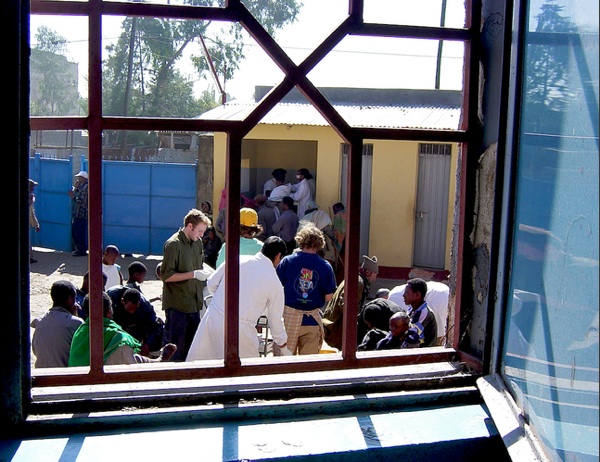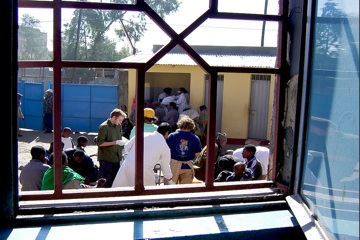
Photo: Rick Hodes
It was a Mission of Charity, rightfully titled, “For the Dying and Destitute.” Gloves often ran out, needles were reused for injections of Penicillin after being boiled, and the medical cabinet was an untidy mosaic of random medicines labeled in different languages, which had been donated by an unsteady stream of volunteers from around the world.
